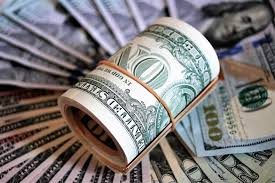Hedge fund… when you hear about hedge funds you may have a mixed emotional response from greed to admiration. Hedge funds are a very important part of the modern finance industry and Sebastian Mallaby’s More Money Than God: Hedge Funds and the Making of a New Global Elite details the history of hedge funds. There are stories of the very first hedge fund and its creation in the mid 20th century and how that one fund led to the hedge funds now in existence today. There are a few key takeaways from this book that resonate with me including the role of hedge funds in modern finance, size matters, and funds often times defy statistics.
The first learning is that size matters. Simply put there is a point where a hedge fund becomes so large that it no longer is efficient enough to move quickly and without signaling or changing the market sentiment. Mallaby highlights a number of examples of hedge funds that over the course of their lifecycle as they grew in size and their bets became larger it was more difficult to quickly move in and out of positions. Even when these funds were able to they often created the opposite effect they desired as unloading or loading up on one position threw off the normal trading patterns. This inevitably led to an inability to get out of bad positions in the long-term, but short-term could have a positive effect on the specific fund. Another key piece to point out is that the more leveraged hedge funds in the examples were the greater the reward, but the more risk that was created. This led to the demise of many formerly great hedge funds.
The next key point is that every hedge fund had models and statistics that guided their investment plan. There were painstaking efforts to ensure that each fund properly accounted for risk. When the times were good those models performed well and a feedback loop of continued trust in the risk assessments was created. Yet ultimately as those funds grew or circumstances outside of their models appeared, these models failed resulting in tragedy for these funds. Wealth financiers who had cut their teeth preaching their style of investing were forced into insolvency as a factor outside of the model came about. The size, liquidity, leverage, and models all clouded the judgments of many very smart people and ultimately led to their demise.

The last takeaway was something I had not contemplated prior to reading this book but truly is an interesting thought experiment. During crises or when a famous hedge fund blows up, there is a call for regulators to clamp down on these institutions for wreaking havoc in the markets. There are examples where this may be called for yet bucketing all hedge funds into this camp may miss the point. Mallaby compares hedge funds role to those of banks through the 2008 financial crises. Banks acted irresponsibly prioritizing short-term gains for the long-term financial stability of themselves. They were FDIC insured or had the comfort of knowing that most likely the government would bail them out. The concept of too big to fail came about and minimized risk for those bad actors. On the contrary hedge funds many went under and lost money but at the end of the day, there was no undue harm to innocent people. Wealthy investors and institutions lost money from hedge funds during the crises, but taxpayers did not have to bail them out in order to maintain stability. This is in contrast to banks whom the U.S. government subsidized through taxpayers banks’ poor performance.
What is the role of hedge funds in our society? Are they evil or benign? The argument Mallaby makes which I tend to find somewhat convincing is that hedge funds provide liquidity in the markets and ultimately their failure does not cause an undue burden on innocent everyday people. There are exceptions for bad actors, but as a whole, the hedge fund industry may even be seen as crucial to our modern financial system. Hedge funds shoulder a portion of the risk thus eliminating the need for other institutions that are insured by taxpayers dollars in the market. Hedge funds often make obscene amounts of money, yet they may be providing a benefit to markets and the economy.

[…] More Money Than God – Book Review […]
[…] More Money Than God – Book Review […]
Comments are closed.